Good start for Valencia's watermelon campaign
The watermelon campaign started a week ago in Valencia with good prices, as consumption was boosted by the high temperatures recorded across Europe. The campaign in Murcia is currently in full swing, while the Region of Valencia is just starting, Morocco has stopped producing and 80% of Turkey's production is being sold in the domestic market. "This is thus an ideal situation for Spanish watermelon, and an excellent campaign is expected," says Guillermo Edo, director of the Valencian cooperative Benihort.
"This week, our campaign will already be in full swing. Seedless white watermelons are mostly intended for exports, while the majority of black seedless ones will end up in the domestic market. Worthy of note is the great work carried out by commercial houses, which have been able to find seedless varieties with a high Brix and to obtain scheduled productions. In the end, success has little to do with the sale price," says Guillermo Edo.
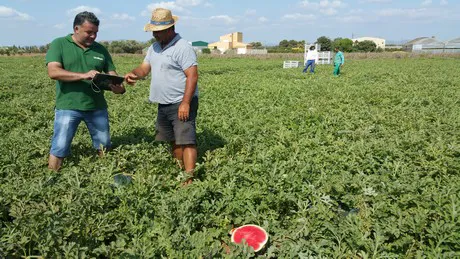
Spanish citrus fruits: Creating a brand in order to overcome the crisis
According to Guillermo Edo, citrus fruits are still perceived as a generic product for which the sector has failed to create a brand. "In Spain, the current overproduction added to the pressure from imports (Egypt, Turkey, Morocco, etc.) are causing a crisis. The chains are looking for competitive prices and offers for the whole year, thereby pushing prices down. This campaign, the price at origin of lemons has dropped by about 50%. Only the premium quality has somewhat escaped from this pressure. Even the price of juice has dropped drastically. The most dramatic part of all this is that some cooperatives will not be able to pay the agreed prices. As a result of this crisis, some growers have decided not to harvest, leaving 20% of the lemons in the trees," he says. "The processing industry has also been affected, with the consequent drop in juice prices."
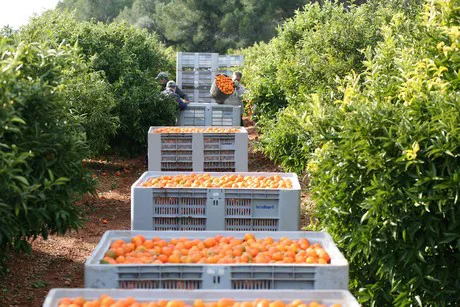
"A possible way out of the crisis, without taking the competition from other countries into account, would be to create a brand. The apples marketed as Pink Lady or Marlene, or the watermelons sold under a Bouquet label, are examples of products that have been able to position themselves thanks to a brand. Without brands, the supermarkets will only offer low prices," says Guillermo Edo.
Melons are losing ground to watermelons
"The case of melons is different. They are more expensive to produce than watermelons and this takes a toll on the sale prices," says the director of Benihort. "The innovation achieved with watermelons is not comparable to that of melons. The latter is a product that has been left behind in the race. Today's consumers are looking for products that are quick to consume; they demand convenience. Maybe we should be striving to obtain a seedless melon," says Guillermo Edo.
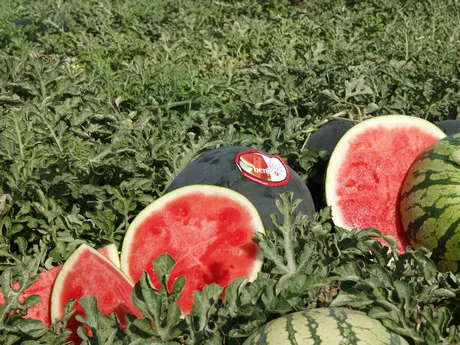
The organic line as differentiation, and not as an end in itself
For Benihort, the organic line is not an end in itself, but simply product differentiation. Between 10 and 15% of its supply is already organic. Products such as artichokes, watermelons and tomatoes are in the conversion phase. "There is a real demand that we want to meet, but we believe that the conversion must be done gradually, based on the market's needs. Within the next 5 years, we hope 30% of our volume will already be organic," says Guillermo Edo.
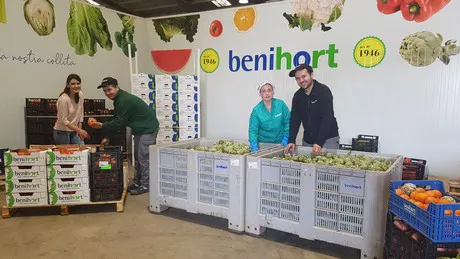
Diversification, corporatism and closed economy: keys to compete
The Benihort cooperative has 20,000 meters of greenhouses and horticultural crops, with their corresponding seedbeds, nursery plants, etc. The partners have access to technical assistance, fertilizers, phytosanitary products and other necessary products for the day-to-day operations, including infrastructure for machinery and a gas station. Other services, such as counseling, insurance, telecommunications and accounting are useful to the members. "It is vital for the producer to be integrated into the cooperative, with it providing them the necessary tools to carry out their activity in the best way. Faithful partners help drive a closed circular economy that strengthens us in the face of the competition," says Guillermo Edo. "The balance of 2018 could not have been more positive; we have broken our turnover record in 70 years of existence and managed to grow by 11.41% compared to 2017." He also said that "diversification has been one of the keys to get an integrated and stable cooperative."
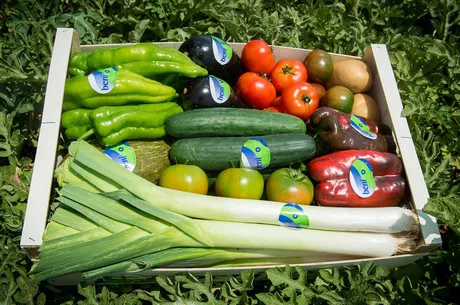
"The logistics are also essential; that is why we have invested in a fleet of trucks. Spain's advantageous geographical position allows it to meet the demand in Europe within 24-48 hours. Moreover, we have regular routes to the Netherlands and Perpignan; two stable channels," says the director of the cooperative.
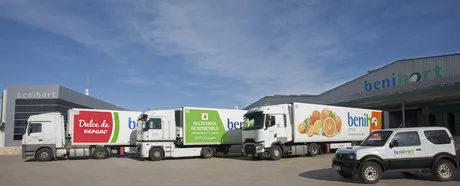
History
Benihort was founded in 1946 for the sale of traditional Spanish products, such as artichoke, cauliflower, cabbage, leek and watermelon. Currently, it is a point of reference in the world of cooperativism in the Region of Valencia. It has 1,800 members with an annual fruit and vegetable production totaling 70 million, and 2,300 hectares. It has big customers such as Mercadona. 50% of its vegetables are intended for export, with Europe as the number one destination (mainly Germany, the Netherlands, France, Eastern and Scandinavian countries and the United Kingdom). Occasionally, it also exports to Dubai, Canada and Brazil.
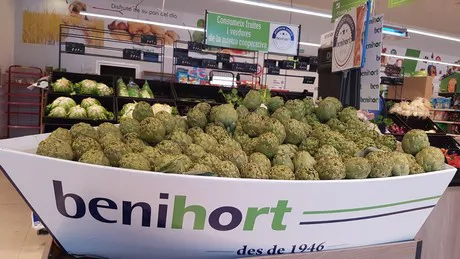
For more information:
Guillermo Edo, director
BENIHORT
Polígono Industrial El Collet
12580 Benicarló, Castellón. Spain
T: + 34964470450
coop@benihort.com
www.benihort.com
